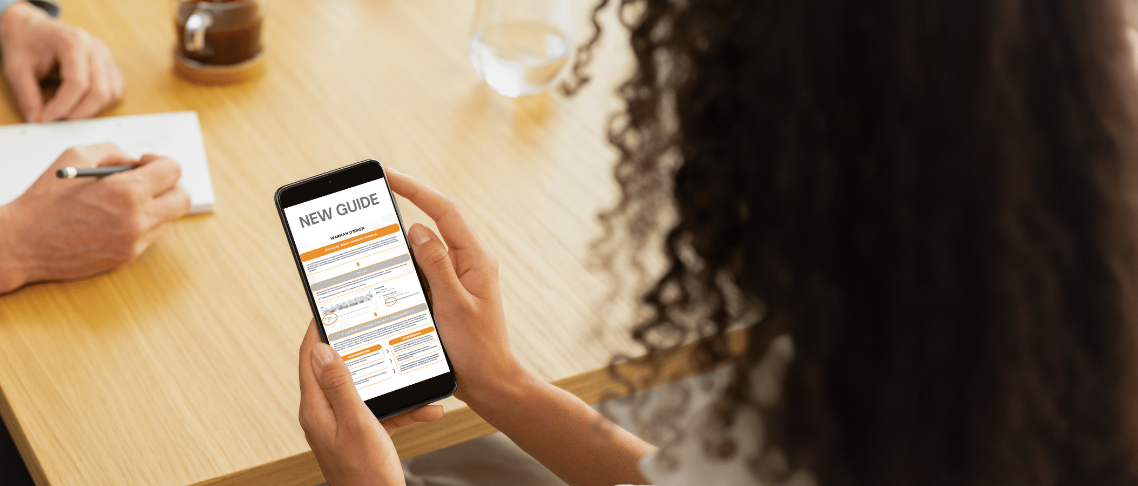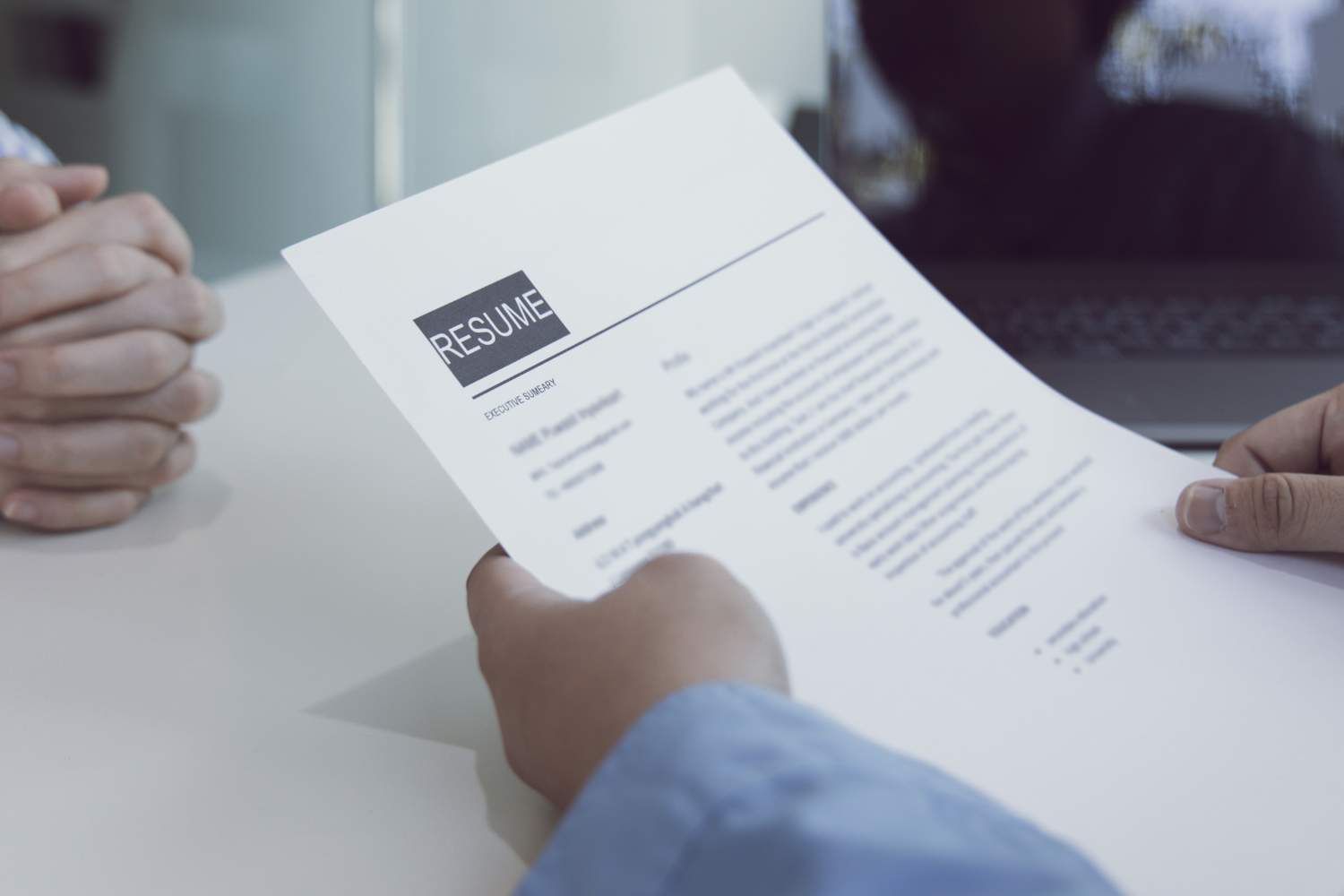
Insights
The Guide to Avoiding Common Interview Errors and Getting the Job
09 Aug, 20235 minutesWalking out of an interview and wondering how you did can be daunting, and there will always...

Walking out of an interview and wondering how you did can be daunting, and there will always be lots of questions running through your mind about how you might’ve done. It’s easy to think you’ve made some common interview errors, even if you’re an expert with many years within the life sciences industry.
Whether you’ve used a life science recruitment service or applied for a role yourself after finding it online, the waiting period can cause a lot of anxiety—not to mention the stress caused by making common interview errors.
Did you over-or-under-prepare, or did those nerves get the better of you? Did you waffle a bit about that unrelated hobby? Within the life sciences, we’re passionate high-performers, always striving to achieve better results. Consequently, we’re often caught second-guessing how we came across at the interview stage.
We’ve compiled a definitive list of the common interview mistakes to avoid and some signs an interview went well. We hope this information can be helpful for candidates in all sectors of the industry and ease the process of preparing for the life science interview process.
10 Common Interview Errors to Avoid
Before we go into how you can better understand your interview, reviewing a list of common interview errors is a good idea. If you're going through hiring agencies to arrange your interviews, your life science recruitment consultant will likely give you a list of do's and don't’s for that particular interviewer or hiring manager. Still, a general list of what to avoid is also helpful.
While people can make many interview mistakes, a little preparation can help you avoid these pitfalls and hopefully feel more comfortable in front of the next hiring committee.
1. Not dressing appropriately
Before entering the office, you should research the company’s culture. There’s a big difference between business casual and professional dress for different companies. Ask your life science recruitment consultant if you need help figuring this out and have come through an agency.
First impressions matter: regardless of the role you’re applying for, it’s essential to look professional, polished, and well-groomed. You want to leave an interview feeling like you’ve stood out, and you should ensure you’re standing out for the right reasons.
2. Lying on your CV
You should be honest from the start to the end of the interview and throughout the hiring exercise. Particularly in life science recruitment, your interviewers will ask you to discuss your experience and academic qualifications, so any fabrications about your expertise could damage your chances and credibility. Additionally, life science interview questions will typically ask candidates to answer specific queries related to their training, so avoid lying on your CV and being unable to address an interviewer’s questions.
3. Arriving late
Talking about how first impressions are essential, this is likely never more true than at an interview. Arriving late can imply that you need better time management skills or more respect for your interviewer. Make sure to leave early and plan your journey.
Of course, there can always be unforeseen circumstances—if this is the case, make sure to contact your interviewer with enough time to apologise and let them know. They will most likely be accommodating, or they might want to rearrange your interview, but it will always look better than just turning up late.
4. Poor body language
Poor body language, such as slouching, yawning, and crossing your arms, could make you appear disinterested or lacking in enthusiasm to an interviewer. Think about how you might come across while waiting or during the interview.
Maintaining eye contact, having a good posture, and being cheerful and happy to answer questions will get you a long way in building a rapport with the interviewer and making the interview a more pleasant experience for all people involved.
5. Lack of research on the company
Not doing enough research into the company and its operations is a mistake many candidates make. Being stumped by questions such as “What do you know about this company?” can make a candidate who would otherwise be an ideal fit for a role look unattractive.
You should also check out the company’s website, starting with their “About Us” and any “Meet the Team” pages, before doing a more thorough Google search for recent news on them and checking their social media pages. Companies conducting life science recruitment activities will want to see that candidates can carry out independent research since this is often a core competency for roles within the sector.
6. Rambling
It’s easy to ramble in an interview setting, particularly when nervous or rushed. Ensure you avoid this when preparing for your interview by getting there in good time and calming your breathing before the interview.
Make sure you listen to—and understand—the questions the interviewer asks, and ask for clarification if you need to.
When answering, take a few seconds to think about how you’ll structure your answer and give examples, but make sure it’s concise and to the point. Rushing to answer and rambling is one of the most common interview mistakes, particularly within the life science industry—where we’ll often be asked to describe how we responded to situations with reference to our academic training and work experience.
7. Reciting prepared answers
It’s helpful to have some answers prepared for the life science interview questions that will likely arise on education or past projects if you’re applying for roles within the sector. Despite this, you should ensure you’re doing more than reciting answers you’ve prepared earlier or sounding robotic. An interview should be a conversation between the interviewer and the interviewee.
Instead of having scripted responses to the questions you know you’ll be asked, think about your answers as talking points followed by real-life examples as evidence, and focus on the overall concept of what you’re trying to say rather than the specifics.
8. Criticising past employers or colleagues
You never know who your interviewer knows within your industry—or outside—so avoid moaning about a previous boss or a lazy colleague that caused your team to pick up the slack. It’s a small world, after all.
You want to show your interviewer that you can work well with others, and handle workplace conflicts maturely and sensibly. If the topic does come up, you don’t need to lie. You should, however, word your answer to evidence how you worked with that manager or colleague to improve the situation, resolve the conflict, and avoid any business interruptions.
9. Having no questions to ask
As mentioned, the interview is a two-way street between the interviewer and the interviewee. It’s an opportunity to learn about the role, the company culture, and whether you believe you’re a good fit. It isn’t just about the interviewer asking you questions.
When the inevitable “do you have any questions for me?” is asked, use this as a chance to make the interviewer sit up and take notice of you. Having some innovative and exciting questions prepared shows you’ve thought about the role and the company’s values. It also allows you to gather a current employee's opinion of the company.
10. Posting on social media about the interview
Most companies prefer their employees to show discretion when discussing business activities on social media—or even avoid it entirely. As a candidate, keep any discussion of the opportunity or the company off your social media until you’ve been selected for the job and have had a chance to see their social media policy.
If you take the time to prepare for your interview and take some of the advice we’ve given here to heart, you’re much more likely to avoid these common interview errors and stand out from the candidate pool much more easily. It’s important to remember that when in doubt, you can always speak to a life science recruitment consultant to enhance your understanding of application and interview processes within the industry.
10 Signs An Interview Went Well
So, you went in calmly, avoided the common interview errors, and asked some great questions that got the interviewer talking about the role and the company in more detail. You’re likely feeling a little bit of relief that all that preparation helped—and then, slowly, you start to wonder: how did it actually go?
Although you might have a gut feeling, that lack of confirmation can mean you’re now second-guessing your performance. You might be desperate to hear back from the hiring manager or committee, but you must avoid the urge to contact them immediately, which is one of the interview mistakes we often encounter. Instead, think back over the experience and consider the 10 signs an interview went well below to make an educated guess.
1. The interview felt conversational
If the interview felt less like an interrogation and more like a conversation between professional peers, then this indicates that the interviewer wasn’t only interested in your skills and experience but that something else clicked with them. It can imply that the interviewer felt you would have a good working dynamic with their company and be a good fit for their culture.
2. The interviewer engaged with you
You’ll often be able to gauge how your interviewer feels about you through their body language and how they respond to your answers. You might pay little attention to it when you’re focused on replying to their questions, but their reactions and positive feedback are a good sign you’re on the right track.
3. The interviewer was selling to you
Every interviewer will receive some recruitment training. Most will talk about the position and what it entails in general terms—but not all of them will try to sell the role and spark your interest unless they feel like you’re a candidate worth pursuing, particularly within the highly-competitive fields of the life sciences.
You've made a good impression if the interviewer gives you a detailed description of the position and what you would do as a team member. Moreover, if they’re starting to link the role to your skills and experience, it shows they want it to work for you.
4. The interviewer included you in their future
If your interviewer starts to talk about how they would use your skills and expertise in their future projects and business plans, it’s a good sign that you’re a leading candidate for the role. This is particularly true for C-suite roles, where you’ll lead the business and drive innovation through a strategic, long-term vision.
Interviewers that do this can often see the value you will add to the organisation and that you’ll fit well into their long-term plans for the business or particular team. It means you’ve made a good impression on them in your interview and other interactions, whether that was a screening call or your application materials.
5. The interviewer introduced you to the team
If the interviewer invites you to meet the wider life sciences team, it highlights that you’ve impressed them and that they want to see how you’ll interact with your colleagues before making the final decision.
Meeting the team is still a part of the interview process, so remain professional, polite, and friendly. Remember, the interview is a two-way street and an excellent opportunity to get a feel for the working environment and company culture and decide whether it fits you.
6. The interview ran over time
Your recruitment consultant or the interviewer may have discussed the anticipated format and length of time of the meeting. If it runs over, this is one of the signs an interview went well. The hiring manager’s time is precious, and they’ll likely have other meetings to prepare for that day, so if they choose to dedicate a bit more time to you, they want to learn more about your skills and expertise.
7. You feel excited about the company and the job
If you walked out of the interview feeling like you’d be excited to walk back into the job tomorrow, you’re looking forward to meeting your colleagues and being a part of the company’s culture, it’s a good sign an interview went well. The interviewer was likely enthusiastic about the role, how you’ll fit in, and what you could gain from the business regarding career progression.
8. The interviewer discusses the next steps in the application process
Did the interviewer start discussing the next steps in the recruitment process with you as the interview was closing? This could be a second interview or a task they’d like you to complete to see that you can evidence your skills. Mid and senior-level roles are competitive within the life sciences, and there will likely be other candidates interviewing for roles—meaning that it’s likely that they wouldn’t waste your time or theirs if they didn’t believe you were a candidate worth pursuing to fill the position.
9. The interviewer asked you when you would be able to start
The interviewer asking when you can start is often a common question delivered at the end of many interviews, but focus on how your interviewer provides it. If the question is asked quickly, amongst several other questions, they may be going through the motions.
However, if they ask it as a standalone question and follow up with their questions and comments on the topic, it’s a good sign that they are considering offering you the role.
10. The interviewer gave your recruitment consultant good feedback
If you’re working with a life science recruitment agency, you’ll most likely receive a call to discuss the interview with your consultant. This is a chance to ask whether the consultant has received any feedback. If the business or interviewer took it upon themselves to contact the recruiter, this bodes well.
Even if you miss out on this role, with the feedback and confidence you’ll have gained from reviewing this interview experience, you’re in a much stronger position to ace that following interview.
As long as you’ve made a good impression and answered the interviewer's questions clearly, concisely, and with reference to your work experience, you can confidently say you’ve done your best job. You can do some preparation for any follow-up questions or second-round interviews and brush up on the more specific aspects of the role that the interviewers will want to explore in that conversation.
Assisting Candidates At All Levels with Life Sciences Recruitment
At Warman O’Brien, we’re proud of the strong industry connections we’ve built, and the consultants on our team are all life sciences sector specialists. So we'd love to hear from you whether you’re looking for talent solutions for C-suite roles or a candidate looking for a life science recruitment partner that can support you throughout your career. Contact us to discover how we can help you ace the interview and get the next job that will enhance your career.


